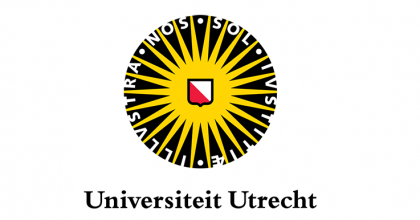Snabbfakta
-
- Utrecht
- Heltid
- Rekrytering
Kategorier:
- Energiteknik
- Miljövetenskap
Titlar:
- Doktorand
Ansök senast: 2024-12-01
PhD Position in Multi-functional Hydropower Reservoirs
Are you interested in creating a climate-proof future for hydropower reservoir systems in river basins? Join us to tackle challenges in the Rhine!
Job description
In this PhD project, you will tackle the critical challenge of balancing hydropower energy production with competing water demands, such as irrigation and flood control, in reservoirs impacted by climate change and extreme weather events. Hydropower plays a vital role in the global energy transition, providing essential renewable energy and supporting grid balancing between supply and demand. However, its reliability is increasingly threatened by changes in water availability and the emergence of extreme conditions, such as droughts and floods, which complicate reservoir management.
Your job
The research will focus on the Rhine basin, a transboundary river system where trade-offs exist between national water and hydroelectric needs, impacting downstream water levels and increasing the risk of conflicts. The Rhine basin is ideal for this study due to its wealth of high-quality data and established models, allowing for accurate predictions of reservoir water levels. However, managing water use across borders requires careful coordination, as unilateral actions by one country can significantly affect others.
You will aim to develop advanced modelling frameworks and operational schemes to optimise the use of hydropower reservoirs for multiple purposes, including flood control, drought management, freshwater provision, and energy supply security. By considering trade-offs and synergies, this research will help ensure hydropower resilience in the face of future climate extremes while minimising conflict and enhancing cooperation in transboundary regions like the Rhine.
With your strong skills in data analysis, modelling, and optimisation—particularly in water and energy systems—you will be able to carry out the following key methods:
- conducting literature reviews to understand hydropower reservoir functions.
- developing frameworks for effective water level control.
- using flood forecasting models to simulate extreme weather events and their impacts on reservoir operations.
- integrating hydrological details into energy system modelling to assess the effects of hydroclimatic extremes in decarbonised and interconnected energy systems.
You will also publish your results in peer-reviewed journals, present at international conferences, and dedicate 10% of your time to teaching.
Requirements
To excel in this role, you should possess the following qualifications and skills:
- an interest in both energy science and hydrology;
- a relevant Master’s degree in hydrology, energy sciences, environmental sciences, environmental engineering, or a related field;
- an understanding of basic hydrological modelling;
- experience in quantitative analysis and statistics;
- a background in programming with Python, Matlab, or R, ideally with experience in spatio-temporal datasets;
- strong communication skills, both written and spoken (C1 level in English);
- problem-solving skills and the ability to work independently as part of an interdisciplinary research team.
Useful additional skills:
- an interest in multidisciplinary and interdisciplinary research;
- experience with energy system modelling (e.g., PLEXOS or PY-SPY) is beneficial for assessing hydropower’s role in system flexibility under climate and socioeconomic changes;
- familiarity with hydrological modelling in 2D or 3D (e.g., D-Hydro, Delft 3D).
Conditions of employment
We offer:
- a position for one year, with an extension to a total of four years upon a successful assessment in the first year, and with the specific intent that it results in a doctorate within this period;
- a working week of 38 hours and a gross monthly salary between €2,872 and €3,670 in the case of full-time employment (salary scale P under the Collective Labour Agreement for Dutch Universities (CAO NU));
- 8% holiday pay and 8.3% year-end bonus;
- a pension scheme, partially paid parental leave and flexible terms of employment based on the CAO NU.
In addition to the terms of employment laid down in the CAO NU, Utrecht University has a number of schemes and facilities of its own for employees. This includes schemes facilitating professional development, leave schemes and schemes for sports and cultural activities, as well as discounts on software and other IT products. We also offer access to additional employee benefits through our Terms of Employment Options Model. In this way, we encourage our employees to continue to invest in their growth. For more information, please visit Working at Utrecht University.
Employer
Universiteit Utrecht
A better future for everyone. This ambition motivates our scientists in executing their leading research and inspiring teaching. At Utrecht University, the various disciplines collaborate intensively towards major strategic themes. Our focus is on Dynamics of Youth, Institutions for Open Societies, Life Sciences and Pathways to Sustainability. Sharing science, shaping tomorrow.
Utrecht University’s Faculty of Geosciences studies the Earth: from the Earth’s core to its surface, including man’s spatial and material utilisation of the Earth – always with a focus on sustainability and innovation. With 3,400 students (BSc and MSc) and 720 staff, the faculty is a strong and challenging organisation. The Faculty of Geosciences is organised in four Departments: Earth Sciences, Human Geography & Spatial Planning, Physical Geography, and Sustainable Development.
Additional information
For more information, please contact Dr Jana Cox at j.r.cox@uu.nl.
Candidates for this vacancy will be recruited by Utrecht University.


